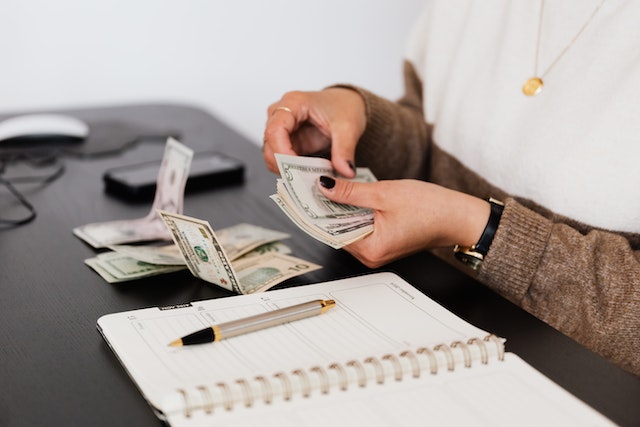Taking control of your personal finances can help you now and in the future in numerous ways. It can help you in case you are stuck in a cycle of debt, are saving for a major milestone, or need to stay aligned with your retirement goals. Here are some strategies to help you take charge of your finances right now.
Pay Your Debts
It is almost impossible to take control of your expenses if everything you make goes towards repaying your debts. Your debts also make it hard to budget or save money, especially if you carry a lot of high-interest credit card debt.
Start by writing down your debt, the type of debt it is, and who you owe it to. Next, make a note of how much interest you are paying on it and how much your monthly repayments are. You can then allocate funds to paying off the largest debt with the highest interest rate. It is best to do this because this debt accrues interest faster and is thus costing you the most. Because of this, you will always be paying it if you do not get rid of it as soon as possible.
Consider a debt consolidation loan. This is where you take a loan to repay all your debts and are left with only one debt with a reasonable and manageable interest rate to pay.
Learn to Budget
It may sound simple enough, but budgeting is the key to having enough money to pay for your lifestyle and to save or invest for the future. Budgeting is simply a plan for how you will spend your income every month. It is based on how much you earn as well as how much you spend.
To get started, list down all your income sources and how much you make from them. Next, list all the expenses and subtract them from your income. The difference is your discretionary spending that you are left to do as you wish with. You can save or invest this amount or leave some money for other unexpected expenses.
Track your expenses and this discretionary amount every month and then see how well you stick to your budget at the end of the month. If you find that you have spent more than you make, you will need to revise your budget and think about how you are using your discretionary income.
Rethink Your Monthly Bills
One of the best ways to reduce your expenses and take control of your finances is by reducing your monthly expenses. You will not be able to reduce your fixed costs such as your rent or car repayment, but you can alter your lifestyle and shop for new services to reduce the expenses.

You could cut back on entertainment and clothing and do some comparison shopping for things like your internet service and insurance. Also, consider buying food in bulk at cheaper stores where you can get a discount.
Prepare for Medical Emergencies
Medical emergencies can be devastating not only to your health but also to your personal finances. Medical emergencies are one of the leading causes of financial hardship because they can lead to debt that can take a very long time to pay off. Other areas of your life can suffer as you recover from your illness such as your work, and you might struggle to pay off the medical debt leading to financial hardship.
It is best to be prepared for such emergencies by either having some money saved up or by getting proper insurance. Insurance is a much better option, especially when there is a balance between the out-of-pocket expenses and monthly premiums.
You can save up for medical emergencies, but the rising cost of healthcare makes it so that most people can only save for small emergencies and have to rely on insurance for bigger ones.
If you are having a hard time preparing for a medical emergency, you could talk to a financial advisor so they can help you streamline your finances. You could also talk to a legal expert to tell you what options are available if you find yourself in such a situation.
Get Rid of Your Credit Cards
If you are using credit cards to build your credit rating, you could keep them. However, if you are using them to make ends meet, you are either not earning enough or living outside your means. Relying too much on credit cards could leave you in debt, which can be especially difficult to get rid of because of the interest rate and late payment fees you might have to pay.
Set up a plan to pay off your credit card debt as discussed above and find out why you need the cards in the first place. Put measures in place to spend within your means using cash or your debit card.
Taking control of your personal finances, especially when you are in debt, takes a lot of planning and deliberate action. You will have to make a budget, see areas where you are wasting money and cut them out, and plan for emergencies that can decimate your finances.


